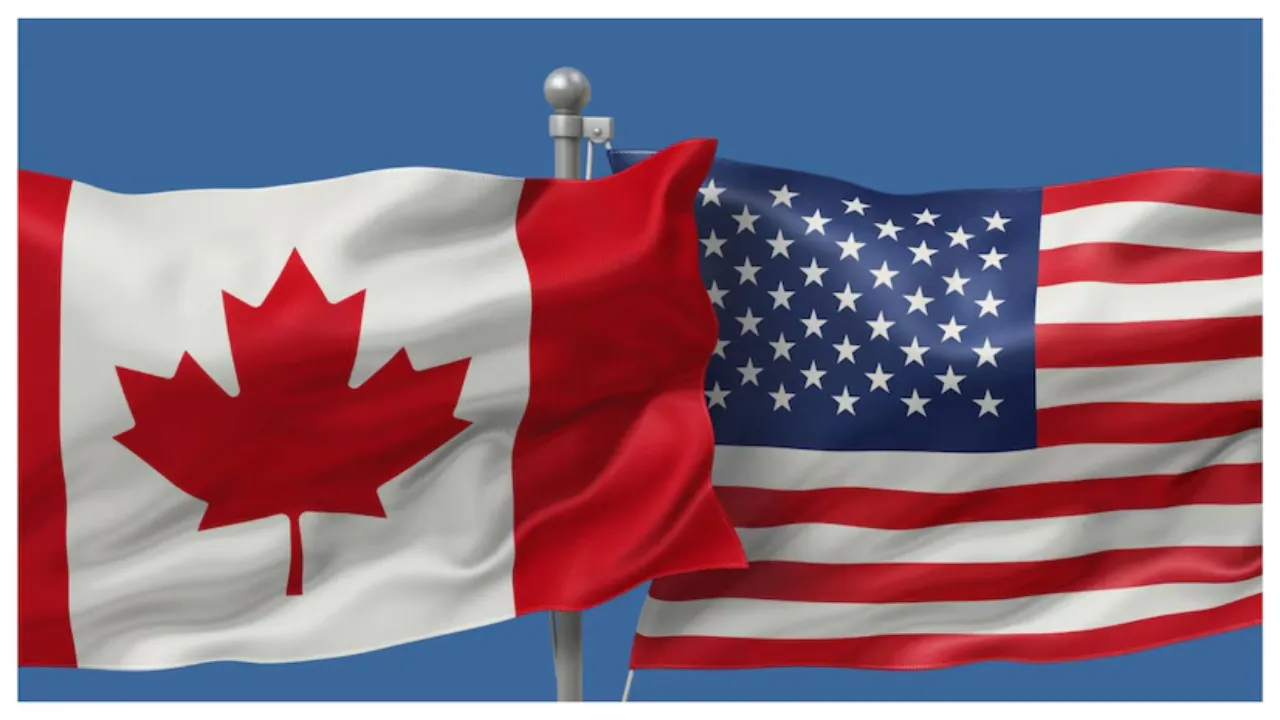A growing number of Americans no longer see Canada as a close ally, according to a new poll by The Associated Press-NORC Center for Public Affairs Research. This shift appears to be driven by rising trade tensions and aggressive political rhetoric from President Donald Trump, straining a historically strong economic and military partnership.
A Decline in Perceived Alliance
The survey found that fewer than half of Americans now consider the U.S. and Canada to be “close allies,” down from about 60% in a 2023 poll. The decline is especially pronounced among Democrats, with only about half now viewing Canada as a close ally compared to 70% two years ago. Republicans also showed a decrease, from 55% to 44%.
While most Americans still view Canada as “friendly,” a significant portion now describe the relationship as “not friendly but not enemies.” This suggests growing uncertainty about the partnership between the two nations.
Trade Tensions and Tariff Wars
Trump’s economic policies have played a central role in this shift. He has imposed tariffs on Canadian goods, including steel, aluminum, and automobiles. His administration recently announced a 25% tax on imported cars and hinted at further tariff increases under a plan called “Liberation Day,” which aims to impose reciprocal taxes based on other nations’ trade policies.
Beyond trade, Trump has made controversial comments about Canada, even suggesting it should become the 51st U.S. state and referring to Prime Minister Mark Carney as a “governor.” These remarks have fueled frustration among Canadians and led to boycotts of American products in Canada.
Growing Canadian Frustration
The tensions have not gone unnoticed north of the border. Prime Minister Carney recently declared that Canada can no longer rely on the U.S. as a stable partner, stating, “We must now look out for ourselves.” The strained relationship has resulted in public backlash, with American products removed from Canadian store shelves and boos erupting in arenas during the U.S. national anthem.
American Reactions to the Shift
Some Americans support Trump’s tough stance, believing it is a strategic move to secure better trade deals. “I think he’s just making them nervous so they’ll negotiate,” said Shaya Scher, a 35-year-old Republican from New Jersey. “At the end of the day, we’re still allies.”
Others see the situation differently. Scott Cunningham, a 69-year-old Democrat from Indiana, believes the tariffs and aggressive rhetoric have done lasting damage. “Trump is sabotaging decades of goodwill,” he said. “Tariffs on steel, cars, and even flowers are making things worse.”
The Bigger Picture: U.S. Global Alliances
The poll also explored Americans’ views on other international relationships. While about half still see the United Kingdom as a close ally, only around 30% say the same about France and Germany. Support for the European Union as an ally stands at about 40%.
Meanwhile, views on Russia and China remain deeply divided. About one-third of Americans consider China an outright enemy, with similar numbers holding that view about Russia. Interestingly, fewer Republicans than Democrats see Russia as a threat, with only about a third of Republicans labeling Russia an enemy compared to four in ten Democrats.
A Changing Global Order?
Some Americans believe the U.S. no longer needs strong alliances, given its military power and technological superiority. Trent Ramsaran, a 37-year-old freelancer from Brooklyn, expressed confidence in American self-reliance. “If America was attacked, we don’t need allies to defend us,” he said, adding jokingly, “We’ve got Tom Cruise. He can teach us how to dogfight in ‘Top Gun.’”
What Lies Ahead for U.S.-Canada Relations?
The recent poll highlights a troubling trend in one of the world’s closest partnerships. While economic pressures and political rhetoric are straining the U.S.-Canada relationship, many still hope that the deep historical ties between the two nations will ultimately prevail. However, with Trump’s policies reshaping international alliances, it remains uncertain how the future will unfold for these North American neighbors.










